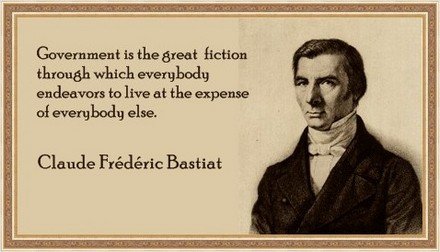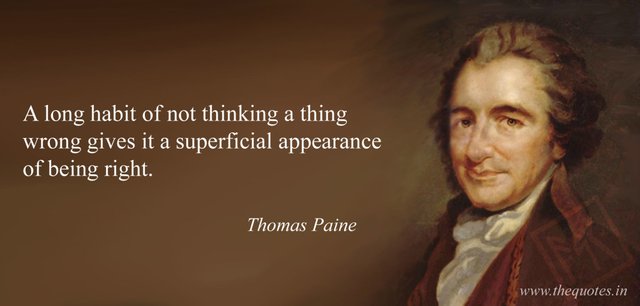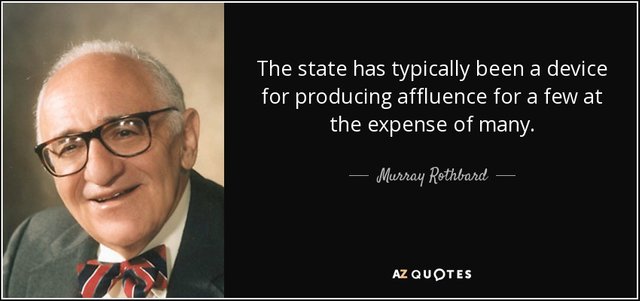Tariffs or legal plunder, you pick.
We have to look at what is seen and unseen. Tariffs usually result in a loss of jobs and not more jobs like our president is saying. Bastiat wrote about tariffs relentlessly. Even the strictest proponent of them would have to second guess himself after reading any one of Bastiat's stinging rebuttals.
"Thus the new tariff law has resulted in this: The protected industry now makes a high profit to which it is not justly entitled. The average French citizen has been duped out of five francs (That five-franc piece comes, not from the moon, but from the pocket of some French citizen who must now pay 15 francs for the thing that cost him only 10 francs in a free market.) by his government, and must therefore do without the article or service he would have bought with it. One segment of the economy has profited at the expense of many others. True enough, because of the artificial price increases, new jobs have been created in the protected industry. But what is not seen is the fact that the extra money now spent for iron must necessarily result in reduced spending for other products and services, and thus fewer jobs in those industries. And worst of all, the people have been encouraged to think that robbery is moral if it is legal."

Now we have a protectionist president in office. Trump's plan is to impose a 25% tariff on steel imports and 10% on aluminum. This would hurt the US as well as other countries. It is important to look at both sides of the equation, "the seen and unseen."
Protectionist policies prove to always be useless. Tariffs, regulations and quotas are as useless as the prohibition of alcohol, the war on poverty, the war on drugs... Subsidizing something only increases its prevalence. People need to rule themselves, individual monarchy (self rule) and the only laws that govern humans are the same laws that govern the universe.
Our president has always seemed economically illiterate when it comes to these things. Every single thing our president does points to his economic ignorance or arrogance.
async src="https://platform.twitter.com/widgets.js" charset="utf-8">When a country (USA) is losing many billions of dollars on trade with virtually every country it does business with, trade wars are good, and easy to win. Example, when we are down $100 billion with a certain country and they get cute, don’t trade anymore-we win big. It’s easy!
— Donald J. Trump (@realDonaldTrump) March 2, 2018
A strong argument in favor of separating from Great Britain was by Thomas Paine. Paine argued that reconciliation with the British will cause the situation (1776) to repeat itself. Paine says that it will be impossible to return to a state of peace and normalcy under British rule after the battles and financial oppression that have occurred. It is misguided to think that the British will not again impose an oppressive tax. Remember, they once again introduced unfair tariffs just under two years after repealing the Stamp Act.

Tariffs also had a hand in triggering the great depression. In 1930 over 1,000 members from the American Economic Association released a signed statement that opposed Smoot-Hawley tariff. The economists said that it would exacerbate the recession in to a world wide repression. The statement included five basic points.
The cost of living “compelling the consumer to subsidize waste and inefficiency in [domestic] industry.”
Farming would not be helped and equipment costs would rise “cotton, pork, lard, and wheat are export crops and sold in the world market."
Our export trade in general would suffer. "Countries cannot buy from us unless they are permitted to sell to us.”
Inevitably provoke other countries to "pay us back in kind (goods or services) against our goods.”
"It would make it more difficult for their foreign debtors to pay them interest due to them.”
Murray Rothbard put it this way when speaking on the topic of tariffs. "If tariffs and restraints on trade are good for a country, then why not indeed for a state or region? The principle is precisely the same. In America's first great depression, the Panic of 1819, Detroit was a tiny frontier town of only a few hundred people. Yet protectionist cries arose-fortunately not fulfilled-to prohibit all "imports" from outside of Detroit, and citizens were exhorted to "buy only Detroit." If this nonsense had been put into effect, general starvation and death would have ended all other economic problems for Detroit's."

We have old answers to new problems. We need to take more trips to the past and we need to stop looking for quick fixes. Those who don't know history are doomed to repeat it.
Tariffs are based on denying the right to free will as well as free trade. This is legalized theft of consumers and countries. The only outcome is coercion, violence and war.
Disclaimer: I am just a bot trying to be helpful.
Great article, thanks. There's a lot to think about here.
I agree, well done.
Thank you. I really appreciate it.